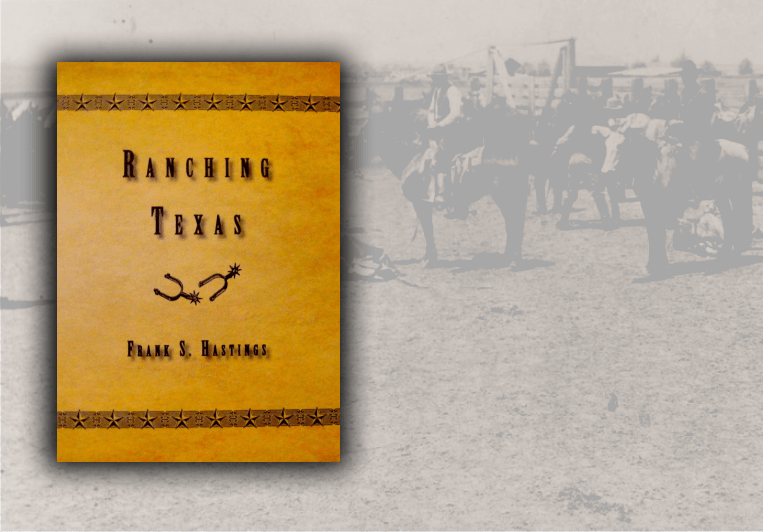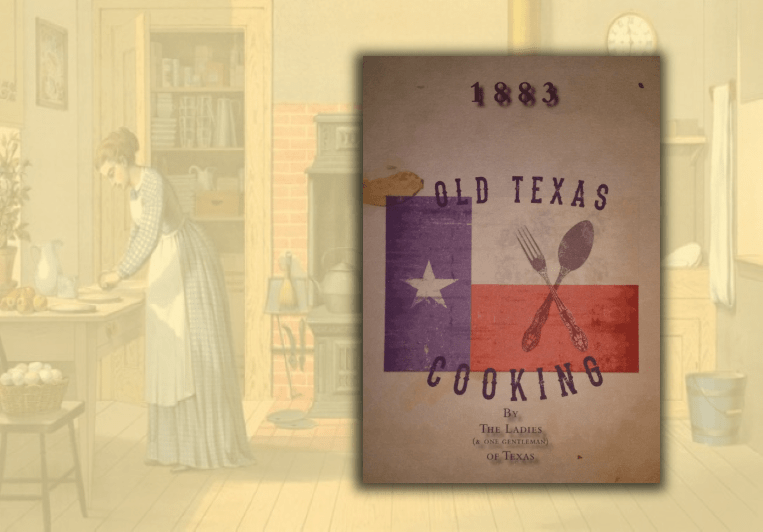
Ranching Texas by Frank Hastings
Sign up for restock notifications
A Ranchman's Recollections of the Cattle Business, with a History of the Industry in Texas, and Stories of Early-Day Cowboys
What a book! There's so much to say about it I don't know where to start.
If you want hard data on the early days of the Texas cattle industry, it's here. If you want first hand observations about cowboy life and cowboy tales authentically retold, that's here too.
Fortunately, everything I want to say about the book and its author has been said by writers better qualified than me, so I'm just going to let them tell it.
A. C. Greene, in his 50 Best Books on Texas, said:
"It is charming and exciting...informal, but informed; agreeable but accurate. It is good Texas History, as well as a memoir of an intelligent, adventurous man.
Frank Hastings was university trained, coming to Texas in 1902 to run the Swenson SMS Ranches after becoming known over the world for his knowledge of bloodlines in cattle. His work as a West Texas ranch manager helped change western ranching from a gamble to a business; ranching is still full of gambles, but Hastings changed the odds a bit in the rancher's favor."
Walter Prescott Webb said:
"There is hardly a cattleman or man connected with the beef industry that Mr. Hastings did not know."
Mary Whately Clarke, in The Swenson Saga and the SMS Ranches, said:
"Hastings' friendly personality and down to earth manner endeared him to the cowboys. The least educated cowboy on the ranches felt at ease and talked freely with him when the opportunity came along."
J. Frank Dobie, in Life and Literature of the Southwest, said:
"Old Gran'pa (chapter 24) is close to the best American horse story I have ever read."
That's high praise from people who know of what they speak.
Here are a few snippets from the book. It's tough to pick. There's so much in these pages you want to share.
On Cowboys:
"I shall write of cowboys as I found them in the spring of 1902, when I came to the SMS Ranch in Texas. There were whole outfits of trained, seasoned men, almost born in the saddle. This situation obtained pretty well up to the war, when voluntary enlistment and the draft took the cream of cowboy material, leaving only the foremen and straw bosses (second in command) to train the material that ranchmen could find. Since then we have robbed the cradle and old men's homes with an ever-shifting outfit, built up round a few old-timers. Yet it has been wonderful how ranchmen have got along. It is explained by the fact that the really skilled old-timers, beyond the age for new ventures, can still handle the technical work, and have infinite patience with raw material."
On cow horse breeding:
"A large number of Texas cow outfits have had their notions about cow-pony crosses, the word "pony" being applied to all sizes of horses, and many breeders have succeeded in producing some good ones; but, in the main, cow horse breeding has been a pure case of "scrambled eggs." It would seem to be hopeless to try to classify or try to get anything definite or rational in the way of distinct lines of breeding beyond the basis which can usually be traced to pure Spanish origin in Texas breeding."
On Burk Burnett, Quanah Parker and paint horses:
"Talking with men in outfits that bred their own horses, I am convinced that the whole problem of breeding cow horses has been saved by "the law of selection" in sires - not registered or purebred stallions, the early-day sires being selected by men who knew a good horse, and used him because he was a good horse. I know of only one Texas ramuda which can be called a "type" - the 6666 outfit, owned by S. B. Burnett of Forth Worth. It Is the result of a carefully thought-out and followed line of breeding. Mr. Burnett and the Indian chief Quanah Parker formed a close friendship in early days, which lasted until that Indian's death not long ago. Mr. Burnett had something like an Indian's love for a "paint" horse, as he is known on the range, or pinto or calico or circus horse, as most know him. Quanah Parker furnished the basis, and Mr. Burnett has lived to gratify his dearest wish - "To drive a purebred herd of cattle to market with a paint ramuda;" but the paint ramuda is a story in Itself, which I may tell as such at another time."
Give Frank a chance?
If you do, he will stay hired a long time. This is a book that stays with you.
Physical Details
- Ranching Texas by Frank Hastings
- Satin finish jacket
- 235 page



